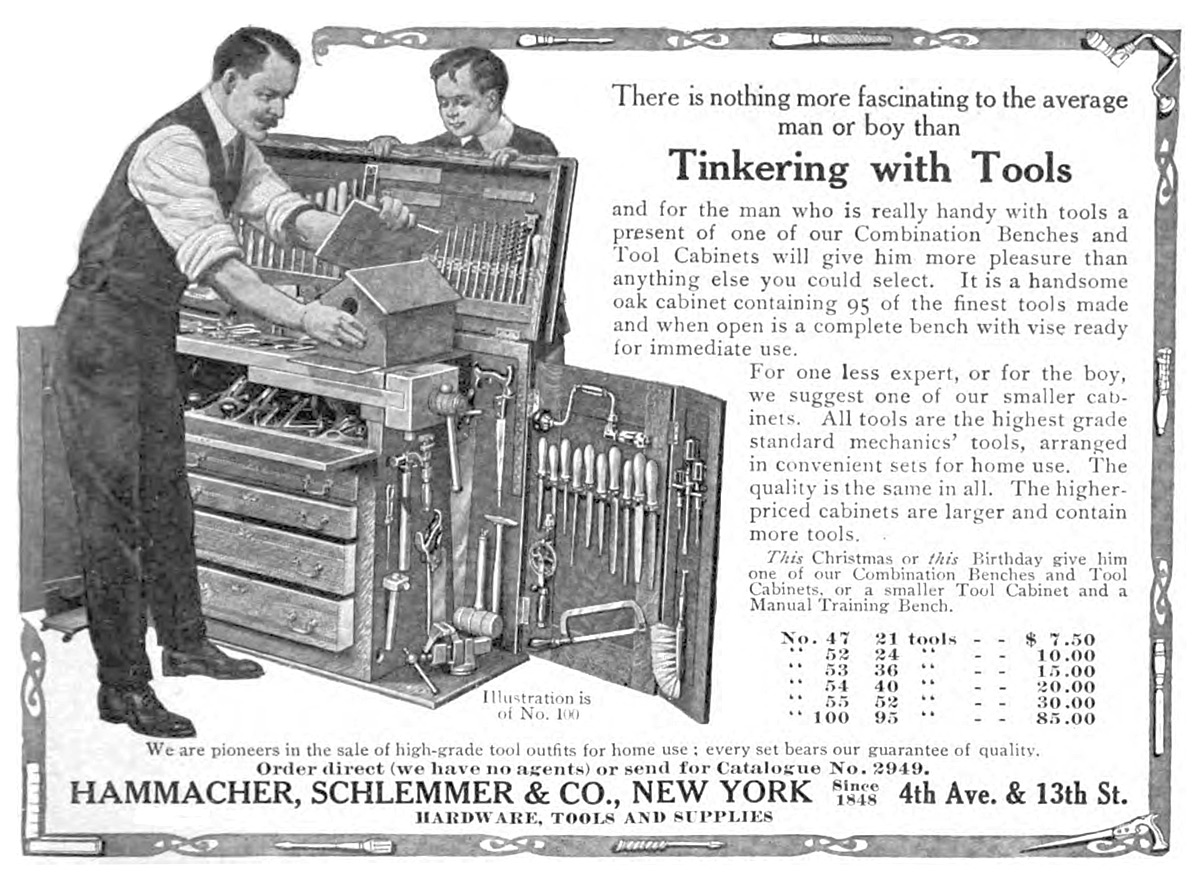Years ago I found it necessary to warn people of certain fallacies and misconceptions. There is less need of warnings to-day, yet there are dangers. Some people still think that manual labor is manual training, just as they probably think that the boy who fetches and carries books in a library is becoming a literary man.
Others think a manual training school should be a factory, and should put its goods on the market. Still others think that the chief product of manual training is found in bits of furniture and knick-nacks which pupils carry home. It is constantly necessary for us to explain that ordinary manual labor is not manual training at all. There is training in mastering the theory and the use of a tool or a machine under the guidance of an expert; but when the mastery is gained, and gained thoroughly, there is no training in its continued use, which is not for education but is for commercial ends.
My usual reply to people who betray such misconceptions is already gray with age, but it may be allowed a positively last appearance here—the more a school becomes a factory the less is it a school. The school should put one article upon the market and that is, boys; and if all the shop exercises of the year were at its close put into a furnace and burned, all the manual training would remain.
Again, it is constantly necessary to remind people that drawing is an essential part of manual training, and yet in a well regulated school the manual features occupy the attention and absorb the energy of the average boy only one third of the hours he gives to school and its duties.
There are however serious dangers threatening the manual training movement. I will mention some. Its premature introduction into the lower grades; a mistake as to its object; faulty methods of teaching, or the neglect of all teaching.
It is a fatal mistake to attempt to teach the theory of tools and logical processes of construction to boys below their teens. Little fellows may play with tools, and they can learn something, but the rigor and logic of correct methods and exact workmanship on abstract principles are beyond them; the work degenerates, and their interest wanes. In either case the attempt fails; and the boy is more or less spoiled, and comes later to the work with feeble interest and strong prejudices.
The greatest danger however arises from faulty methods of teaching, or rather no teaching at all. I cannot too strongly condemn the wishy-washy tinkering with tools and materials, where the child is the victim of his own whims and of his teacher’s ignorance; where under the pretense of developing originality, initiative, altruism, or concrete expression, the child is prematurely misled, misdirected, neglected and mistreated, until the possibility of well-timed and well-regulated manual training is utterly lost.
I regret that I must speak so strongly of a tendency to utterly emasculate manual training by a method of treatment which would be instantly condemned if applied to any other branch of study. I have known young fellows practically turned loose in a shop supplied with tools and lumber, and told to make what they liked, with no instruction as to methods of exact workmanship, and no knowledge of how parts are joined together; the consequence was a waste of time and material, a dulling of edge tools, and a more serious dulling of the edge of interest. The results are shameful constructions and general disgust. We must stand on our guard against these mistakes.
Professor Calvin M. Woodward
Dean of the School of Engineering &
Director of the Manual Training School, Washington, St. Louis.
Proceedings of the Annual Meeting, Volume 11 – 1903
American Society for Engineering Education
Society for the Promotion of Engineering
—Jeff Burks


Business opportunity – build this type of bench for people who live in apartments and outfit it with the right tools.
The $10,000.00 workbench?
There is a thousand bux worth of rasps in the photo alone. 🙂
Lee Valley sells plans for building this bench. They’ll also be happy to sell you the tools to fill it up with!
You guys probably already know that the Greene brothers attended the manual training school in St. Louis. This philosophy of manual training — not with the goal of the student entering the trade directly, but in providing a more complete education — has a lot of appeal to me. Kids today are pushed in middle school and high school to take more advanced math, science and language classes than ever while being assaulted with TV, Video Games and the internet. Learning to create with your hands and mind working in concert is completely ignored to everyone’s detriment.